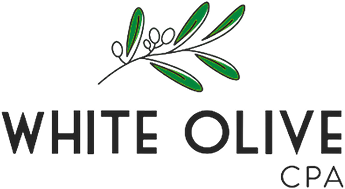The Most Effective Ways to Lower Business Taxes in 2025
July 17, 2025
When it comes to running a successful business, every dollar counts (especially during tax season). Business taxes are an annual obligation that directly impacts your company's cash flow, profitability, and long-term financial health. If you're not actively working to minimize business taxes, you may be leaving money on the table that could otherwise be reinvested into growth, hiring, or innovation.
Fortunately, there are proven, strategic ways to reduce your tax burden without compromising your financial goals. In this blog, we'll walk through practical, IRS-compliant approaches to show you how to lower business taxes effectively. We'll also explain why working with a qualified CPA is one of the smartest moves you can make.

Local to Franklin Tennessee?
Talk to a CPA Now (833) 820-2255 ext 700
Understand Your Business Tax Obligations
To minimize business taxes effectively, you first need a clear understanding of your obligations. Most businesses are responsible for a combination of federal, state, and local taxes, commonly including income tax, payroll tax, sales tax, and, in some cases, self-employment tax.
However, tax liability isn't one-size-fits-all. It depends on factors such as your business structure (e.g., LLC, S-corp), where you operate, your gross income, and the number of employees you have. Calculating these taxes can be complex and time-consuming, especially as regulations vary by jurisdiction. That's why one of the smartest moves you can make when learning how to lower business taxes is to work with a CPA.
A trusted tax professional can help ensure accuracy, maintain compliance, and develop a tailored plan to reduce your tax burden and protect your bottom line.
Maximize Tax Deductions and Credits
One of the most effective ways to minimize business taxes is to take full advantage of every deduction and credit available to you. Deductions reduce your taxable income, which means a smaller tax bill come filing season. Common write-offs include employee salaries, office supplies, rent, utilities, business insurance, travel expenses, and interest on business loans. If it's an ordinary and necessary expense for your operations, it's likely deductible.
Tax credits, on the other hand, offer a direct dollar-for-dollar reduction of the taxes you owe. Some of the most valuable credits include the Work Opportunity Tax Credit (for hiring individuals from targeted groups), the Research Credit, and incentives for energy-efficient building improvements or clean vehicle investments.
However, recordkeeping is where many businesses fall short. To take advantage of these deductions and credits and protect yourself in the event of an audit, you need solid documentation. That means saving receipts, maintaining detailed expense reports, and keeping accurate financial records throughout the year.
Organized, well-documented expenses make filing easier and give your CPA the information they need to uncover opportunities you might otherwise miss. In short, good records lead to great savings.
Choose the Right Business Structure
The type of business you have plays a major role in how much you owe at tax time. Choosing the right corporate structure can significantly minimize business taxes.
LLCs and S corporations are often favored for their pass-through taxation benefits. Instead of being taxed at the entity level, income passes through to the owners and is taxed on their personal returns. This setup not only avoids double taxation but may also unlock access to the Qualified Business Income (QBI) deduction, which allows eligible business owners to deduct up to 20% of their net business income.
Understanding how to lower business taxes begins with determining whether your current structure remains the best fit. Laws change, and so does your business. That's why it's wise to review your structure annually with a CPA. A quick evaluation could lead to major savings and fewer surprises come tax season.
Defer Income and Accelerate Expenses
Timing matters when you're looking for smart ways to minimize business taxes. By strategically deferring income and accelerating expenses, you can influence your taxable income and, in turn, your tax bracket for the year.
For example, if you're expecting a strong close to the year, consider delaying invoices until January. On the flip side, you might speed up planned purchases like equipment or software to take advantage of deductions under Section 179 or bonus depreciation.

This strategy is especially relevant for 2025, as the lower tax rates set by the Tax Cuts and Jobs Act are scheduled to expire. If higher tax rates return in 2026, it may be beneficial to recognize more income before year-end. If you're unsure when to shift revenue or expenses, a CPA can help you pinpoint how to lower business taxes based on your unique cash flow and forecast.
Invest in Retirement and Health Plans
Contributing to retirement and health plans is for your team and is one of the most efficient ways to minimize business taxes. Employer-sponsored retirement plans enable business owners to set aside pre-tax income, thereby reducing their taxable earnings for the year. That means more money saved now and more financial security later.
Health Savings Accounts (HSAs) and Flexible Spending Accounts (FSAs) offer additional deductions for both employers and employees. These plans let you cover medical expenses with pre-tax dollars, lowering overall tax liability across the board.
These strategies create a "win-win" for your business. They reduce your tax bill and boost your benefits package, making it easier to attract and retain top talent while learning how to strategically lower business taxes.
Use Home Office and Vehicle Deductions Wisely
If you run your business from home or spend a lot of time on the road, don't overlook two key opportunities to minimize business taxes: the home office deduction and vehicle-related deductions. The IRS allows you to deduct home office expenses if the space is used regularly and exclusively for business. No guest rooms or multipurpose spaces permitted.
For vehicles, you can choose between deducting expenses based on the standard mileage rate or actual costs, such as fuel, maintenance, and insurance. Either method can yield savings, but accuracy is crucial for ensuring optimal results. Utilize reliable tracking tools or apps to accurately log miles and expenses in real-time. Staying organized helps you learn how to reduce business taxes and stay audit-ready.
Work with a Tax Expert
Knowing how to lower business taxes is one thing. Executing it correctly is another. That's why working with a certified public accountant is essential. CPAs stay up to date on ever-changing tax laws, safeguard compliance at every level, and help you avoid costly mistakes. They also provide guidance on audits, state-specific tax obligations, and long-term planning that most software solutions can't match.
From entity selection to year-end deductions, a CPA brings strategic insight tailored to your business. If you want to minimize business taxes year-round (not just during tax season), partnering with a trusted CPA is a high impact move.
Choose White Olive CPA for Business Taxes in Tennessee
If your goal is to minimize business taxes, don't wait until the end of the year to act. Proactive planning, smart strategies, and proper guidance can make all the difference.
Any business struggling to reduce its taxes will benefit from the expertise and support provided by the team at White Olive CPA. We specialize in streamlining finances and leveraging all valid tax breaks, so you can keep more of the money you've worked hard for without overpaying the IRS or other entities.
White Olive CPA proudly serves clients across the entire state of Tennessee. Ready to get started? Contact us today for a personalized tax strategy consultation.

